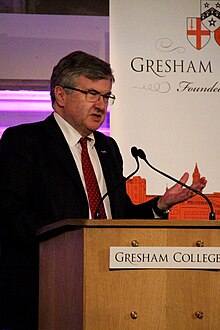
Welcome to this HIS 3150 Historical Methods: World History Historiography and Critical Thinking
The goal of this guide is to provide you the student with all the same resources and tools as demonstrated through the library's website, however, it has been neatly packaged so that you will have everything you will need can be found right in front of you in this course guide. This guide should help shed light on many important resources that can possibly answer those important questions that all historians grapple with such as:
Sincerely,
Lawrence Mello, M.A. M.L.S.
Librarian Liaison to the History Department
Since 2016, he has been the Professor of Medieval History at the University of Cambridge. He previously worked at Birkbeck College, University of London, where he specialized in the study of medieval religious culture. He has also written widely on historiography and why history matters.¹
“The past itself is not a narrative. In its entirety, it is as chaotic, uncoordinated, and complex as life. History is about making sense of that mess, finding or creating patterns and meanings and stories from the maelstrom.”²
― John H. Arnold

Américo Castro, in full Américo Castro Y Quesada, (born May 4, 1885, Cantagallo, Brazil—died July 25, 1972, Lloret de Mar, Spain), Spanish philologist and cultural historian who explored the distinctive cultural roots of Spain and Spanish America. Castro believed that Spaniards became a distinct group, with a sense of ipsiedad (“selfhood”), only after the Moorish conquest, when they became a Christian caste in a society marked by the coexistence of Christians, Moors, and Jews—an explanation of later attitudes that he treated in his Iberoamérica, su presente y su pasada (1941; “Ibero-America, Its Present and Its Past”), España y su historia (1948; “Spain and Its History”), and De la edad conflictiva (1961; “Out of the State of Conflict”). ³
“The person who expects to understand history must submerge himself in it must get rid of patriotism, as well as bitterness. And especially in studying a historic life that consists in insecurity must the historian rid himself of all insecurity. He must accept the totality of the data in all their fullness, the noble with the paltry, thinking of how the two interlock.”⁴
― Americo Castro

Sir Richard John Evans was born in Woodford, London on 29 September 1947 and educated at Jesus and St Antony's Colleges, Oxford (MA and DPhil in Modern History, 1973). He served as Professor of European History at the University of East Anglia from 1983-89 then as Professor of History at Birkbeck, University of London from 1989-98. In 1998 he moved to the University of Cambridge, where he worked as Professor of Modern History from 1998-2008, as Regius Professor of History from 2008-16, and as President of Wolfson College from 2010-17.⁵
“The first prerequisite of the serious historical researcher must be the ability to jettison dearly held interpretations in the face of the recalcitrance of the evidence.”⁶
― Richard J. Evans,
Notes
1. John H. Arnold, “Professor John H. Arnold,” Professor John H. Arnold, Faculty of History, University of Cambridge, accessed January 12, 2023, https://www.hist.cam.ac.uk/people/professor-john-h-arnold.
2. John H. Arnold, History : a Very Short Introduction (Oxford: Oxford University Press, 2000), 13.
3. Encyclopaedia Britannica, “Américo Castro,” accessed January 12, 2023. https://www.britannica.com/biography/Americo-Castro.
4. Américo Castro, The Spaniards; an Introduction to Their History (Berkeley and Los Angeles: University of California Press, 1971), 164.
5. The British Academy, “Professor Sir Richard Evans FBA,” accessed January 12, 2023, https://www.thebritishacademy.ac.uk/fellows/richard-evans-FBA/.
6. Richard J. Evans, In Defense of History (New York: W.W. Norton, 1999), 104.
Bibliography
Arnold, John, H. History : a Very Short Introduction. Oxford: Oxford University Press, 2000.
Arnold, John H. “Professor John H. Arnold,” Professor John H. Arnold, Faculty of History, University of Cambridge. accessed January 12, 2023, https://www.hist.cam.ac.uk/people/professor-john-h-arnold.
British Academy, The. “Professor Sir Richard Evans FBA.” Accessed January 12, 2023, https://www.thebritishacademy.ac.uk/fellows/richard-evans-FBA/.
Castro, Américo. The Spaniards; an Introduction to Their History. Berkeley and Los Angeles: University of California Press, 1971.
Encyclopaedia Britannica. “Américo Castro.” Accessed January 12, 2023. https://www.britannica.com/biography/Americo-Castro.
Evans, Richard J. In Defense of History. New York: W.W. Norton, 1999.
Florida Atlantic University Libraries
777 Glades Road
Boca Raton, FL 33431
(561) 297-6911
